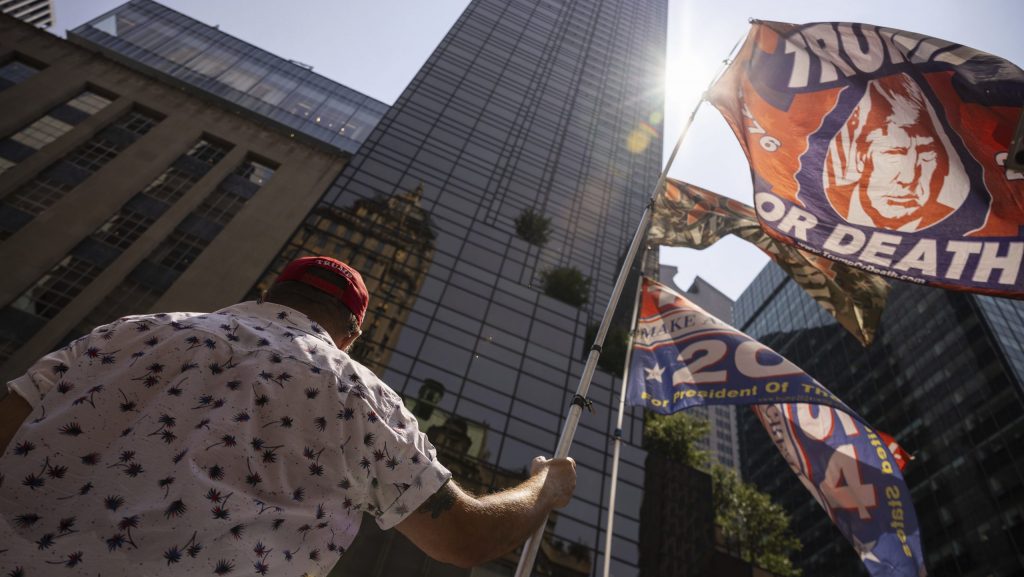Created Equal: How political polarization fueled misinformation in wake of Trump assassination attempt
Justina Giglio July 15, 2024Former U.S. Attorney for the Eastern District of Michigan, Barbara McQuade, and media strategist Matt Friedman joined the show to discuss why misinformation thrives after significant events like Saturday’s shooting.

A supporter of former President Donald Trump raises Trump 2024 flags outside of Trump Tower, Sunday, July 14, 2024, in New York.
Almost immediately after the attempted assassination of former President Donald Trump at a campaign rally in Bethel Park, Pa., on Saturday, speculations quickly spread online about the shooter’s possible motive and who else might be behind it.
Though both Democratic and Republican officials have issued statements condemning political violence in America, intense partisan division have made it extremely difficult for many to bridge the political divide in the wake of the attack.
Because of that mistrust, several conspiracy theories developed to fit their political beliefs before all information was known about the attack. Theories from the left include the belief that the attack was staged by Trump’s supporters, while some on the right accuse President Biden of ordering the assassination.
Political misinformation has long been creeping its way into American politics, and after Trump’s assassination attempt, it’s hard to know what comes next for American democracy. To discuss this, Created Equal host Stephen Henderson was joined on Monday by former U.S. Attorney for the Eastern District of Michigan, Barbara McQuade, and media strategist Matt Friedman.
Subscribe to Created Equal on Apple Podcasts, Spotify, Google Podcasts, NPR.org or wherever you get your podcasts.
Guests:
Barbara McQuade is a former U.S. Attorney for the Eastern District of Michigan, a law professor at University of Michigan and author of the book “Attack from Within: How Disinformation is Sabotaging America.” She says constant negative media rhetoric strokes the flame of political violence.
“You know, fair criticism is one thing, attacking someone’s policies, character, and other things are fair game.” McQuade said. “But I think when you cast it in terms of existential threats to society and demonic scapegoats, I think that there are some who are going to hear that as a call to action.”
Matt Friedman is a media and communications consultant and strategist at Tanner-Friedman. He says the conspiracy theories spread quickly online because people have an insatiable need for information after significant events.
“What do audiences feel like they need in the event of a crisis — especially one that involves any kind of violence or fear being injected into a crowd? Audiences crave and demand facts as quickly as possible [as well as] leadership and reassurance. And what we saw over the weekend on social media, in particular, is where exploitation happened of this insatiable need that audiences have for facts and for leadership,” Friedman said. “And some leaders in politics [and media] stepped up, but instead of providing facts and providing reassurance, they provided political opinion almost instantly. And that was very dangerous.”
Listen to Created Equal with host Stephen Henderson weekdays from 9-10 a.m. ET on 101.9 WDET and streaming on-demand.
